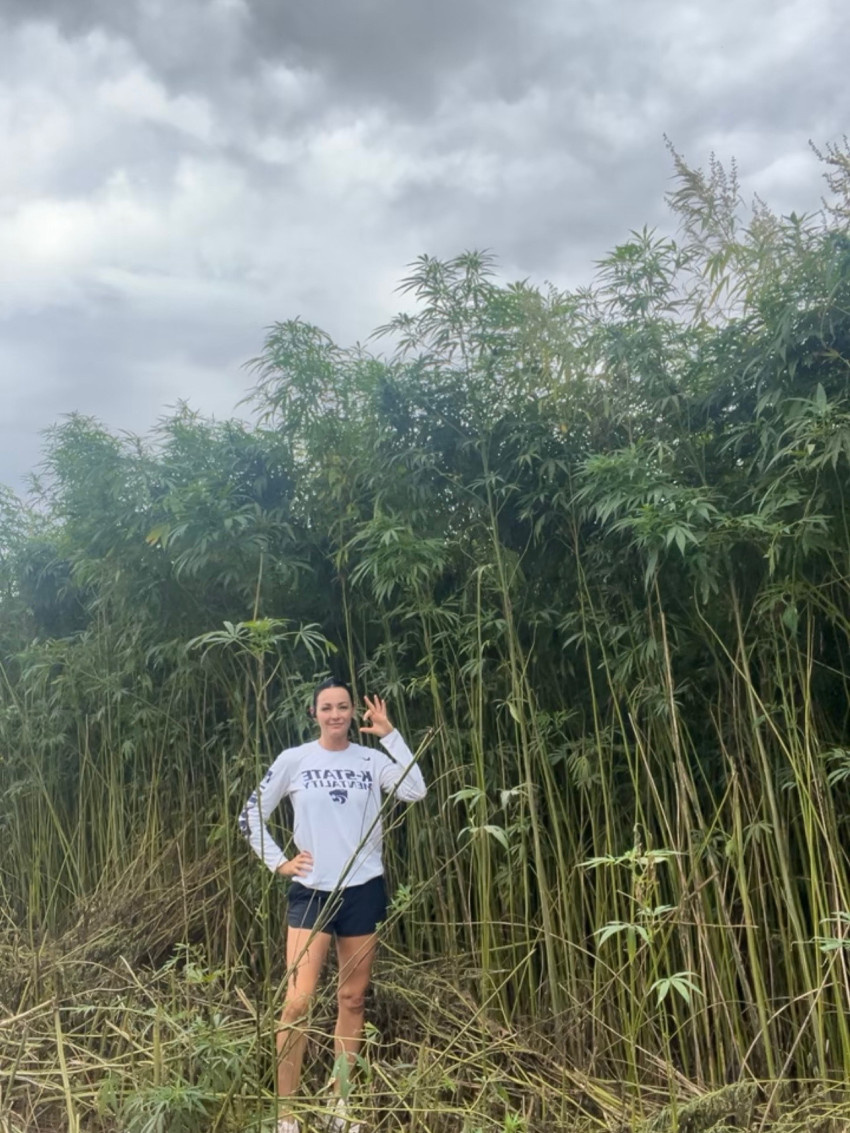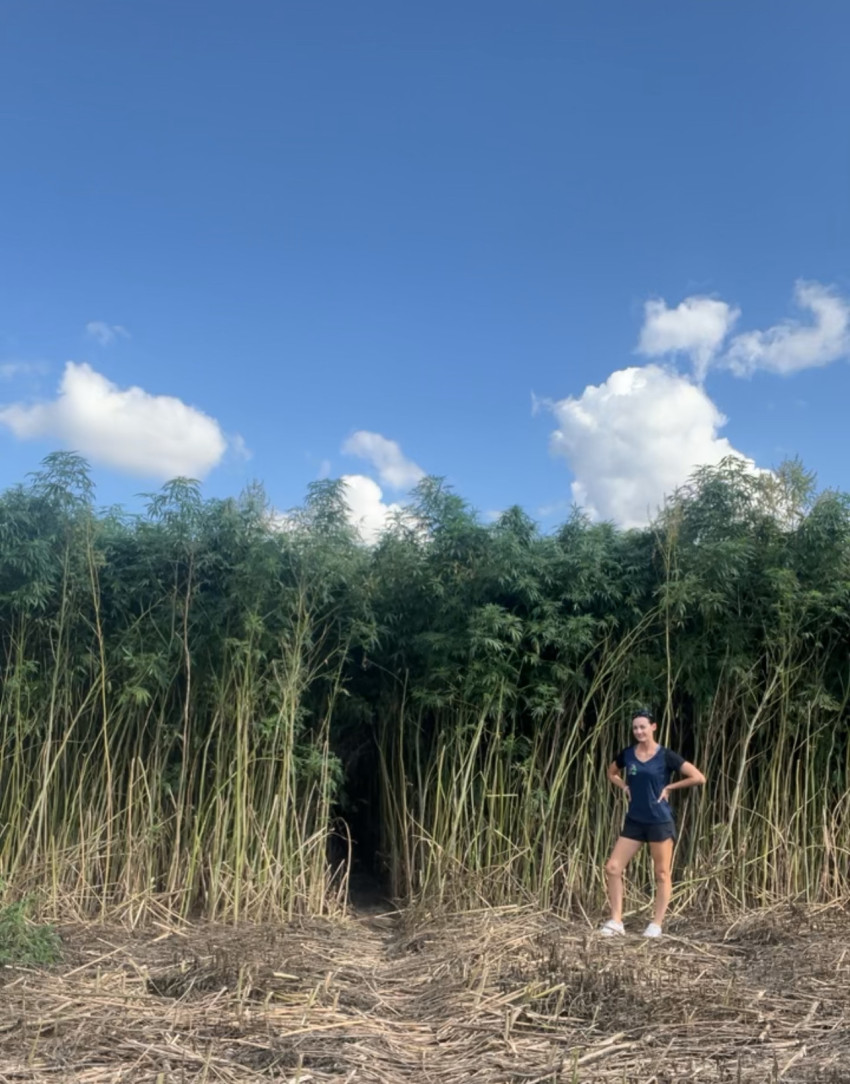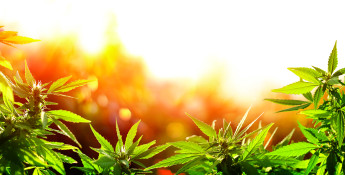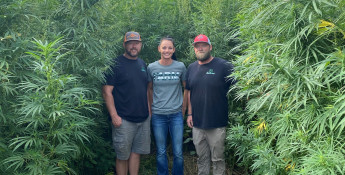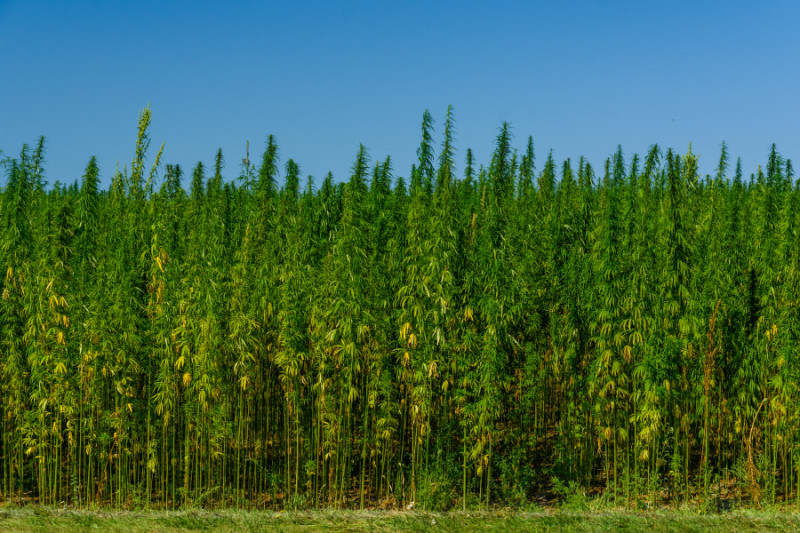By Sheridan Wimmer on November 18, 2025
Industrial Hemp: How it’s Different from Cannabis
South Bend Industrial Hemp in Barton County works to set the record straight on a misunderstood crop
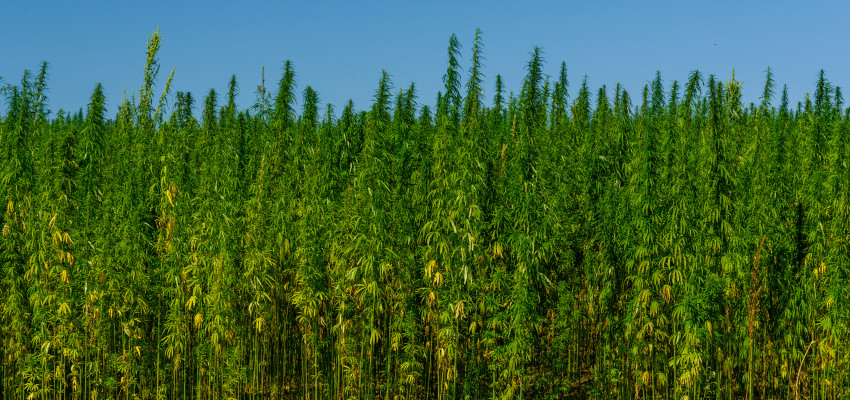
Kansas is mostly known for its wheat, sorghum, corn and cattle, but there’s another crop popping up in a few rows around the state — hemp. While the hemp industry sometimes elicits negative connotations, growers of industrial hemp like Melissa Nelson-Baldwin of South Bend Industrial Hemp in Barton County are advocating for the product and correcting misconceptions.
A new crop with the same machinery
As fourth-generation farmers in Kansas, Melissa, her husband, Aaron Baldwin, and her brother-in-law, Richard Baldwin, were looking for ways to diversify their operation. With Aaron and Richard’s experience as farmers, and Melissa’s knowledge as a crop scientist, they created a new venture in 2019.
“With our blend of backgrounds, the three of us created South Bend Industrial Hemp and started growing hemp for fiber production,” Melissa says. “Our focus has always been on the fiber production side — and since there weren’t any nearby processors of hemp, we opened our own.”
Growing hemp in Kansas seemed to be a natural addition to their farm, according to Melissa. The family already had equipment for other crops and could utilize the same machinery for hemp.
“It was a low-risk way to get into a new industry,” Melissa says. "The biggest learning curve was really seed selection since there isn’t a lot of research or data for industrial hemp so we utilized my research background. We were able to fast track and lessen our learning curve because we could use a data-driven approach and figure that out. We’ve tried out more than 30 varieties on our farm and homed in on what worked well."
Diversification is key on farms
In 2019, crop prices for traditional row crops like corn and soybeans were low — much like they have been in 2025. For South Bend Industrial Hemp, the decision to add the product and learn about it was all because of economics.
“The crop prices in 2019 looked about as sad as they do currently in 2025,” Melissa says. “We were asking ourselves back in 2019, ‘How do we keep our farm moving forward? How do we stay in business?’ We had to diversify that risk and pull some acres out of the traditional crops.”
A unique factor about hemp production is the price of it doesn’t fluctuate like corn and soybeans do.
“As the processor, we’re signing our contracts before any seeds go into the ground, and we know exactly what we’re going to get on a price per ton basis,” Melissa says.
Not THAT kind of cannabis
Recently, Congress signed a continuing resolution to fund the government through January 2026. In the bill is a provision to re-criminalize many hemp-derived products. However, industrial hemp differs from the products the government is banning.
Products made by hemp growers like those at South Bend Industrial Hemp are used for non-intoxicating uses — think fiber, seed and oil. The plant variety Melissa and many other industrial hemp growers raise has less than 0.3 percent tetrahydrocannabinol (THC), which is the threshold set by the federal government.
“That’s a common misconception in the public,” Melissa says. “There are two very different types of cannabis, and the 0.3 percent is the dividing line between marijuana and industrial hemp. The varieties we’re growing have had THC bred out of them — it’s not even a thing.”
Melissa and the whole team at South Bend Industrial Hemp are transparent about their growing methods and have welcomed more than 100 tours per year on their farm and processing facility.
“We’re posting all the time on our social media platforms about the good, the bad, the challenges,” Melissa says. “We want to bridge the gap on what fiber production is and have our visitors see the products made from the hemp we grow like hardwood flooring, insultation, rope and more. I make an analogy about hemp where I talk about going into a grocery store and you need a pepper. You’ve got your bell peppers and your jalapeno peppers. They’re both still peppers but two very different types of peppers. That is what industrial hemp and marijuana are like.”
The regulation of the industry
With misconceptions about hemp, Melissa is dedicated to helping consumers understand the product better. The hemp industry is regulated, and you have to be licensed through the United States Department of Agriculture to grow it. Anyone convicted of a felony within the past 10 years is prohibited in the state of Kansas to obtain a license. There are guidelines to growing and harvesting hemp — and farmers of the product have samples taken to be tested for levels of THC.
“I respect the sampling requirement,” Melissa says. “I understand why it’s in place, but it’s an added expense for us and since we’re such a different variety, it, to me, just isn’t necessary.”
Growing the next generation
With a background established in farming and a love for their community, Melissa, Aaron and Richard learned all they could about growing hemp so they could help others who were interested in the industry.
“I am so passionate about getting farms to the next generation” Melissa says. “If that’s something farmers want, sometimes they have to find a different way and they have to think big picture.”
Even through the challenges, Melissa says 2025 was a good year for hemp growers.
“This year was really gratifying to see farmers have some really good yields,” she says. “We have a great lineup of farmers who are just excellent at their craft, and so it was really fun to see a lot of profitability on those farming acres and seeing the farmers reap the benefit.”
To learn more about South Bend Industrial Hemp, visit their website here and their Facebook page here.
YOU MAY ALSO ENJOY:

